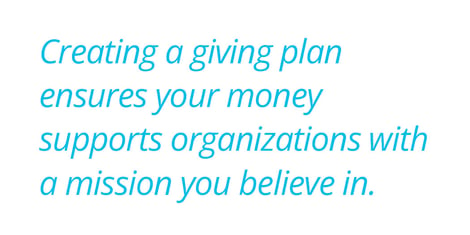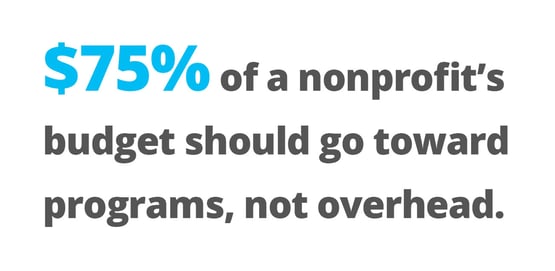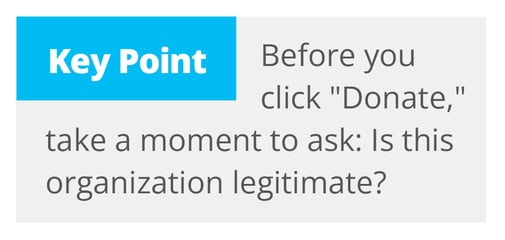Table of Contents
1. Why Vetting a Nonprofit Matters
2. What to Look for in a Reputable Nonprofit
3. Tools to Help You Research a Charity
4. Red Flags to Watch Out For
5. Give With Purpose: Aligning with Your Values
6. Tax Tips and Donation Tracking
7. Year-End Tax Benefits
8. Give Back with Confidence and Purpose with Addition Financial
Making a charitable donation is one of the most rewarding ways to support causes you care about. But in today’s digital world, not all nonprofit organizations are created equal. With hundreds of charities vying for attention, especially during the holiday season or Giving Tuesday, it’s crucial to know how to separate reputable charities from those that may misuse your money.
At Addition Financial, we believe in giving with purpose. That means understanding where your donation is going, how it’s being used, and whether it aligns with your values and financial goals. Here’s how to vet a nonprofit before you give.
Why Vetting a Nonprofit Matters
Before you click "Donate," take a moment to ask: Is this organization legitimate?
Giving to a charity that hasn’t been properly vetted can result in:
- Wasted funds that never reach the intended cause
- Donations are going toward excessive executive compensation
- Falling victim to scams or fraudulent sites
- Losing out on tax-deductible contributions if the organization isn’t properly registered
Doing your homework protects both your money and the impact of your generosity.
What to Look for in a Reputable Nonprofit
When reviewing a nonprofit organization, start with the basics:
1. Clear Mission Statement
Every nonprofit should clearly state its mission, goals, and the communities or causes it serves. Ask yourself:
- Does this organization’s mission align with my values?
- Is their purpose specific, measurable, and action-oriented?
2. Transparency About Programs & Impact
Look for specific examples of how the organization uses donations. Reputable charities often provide:
- Annual reports
- Impact statistics
- Stories or testimonials from beneficiaries
If you can't tell where your donation is going or what it's achieving, that’s a red flag.
3. Responsible Financial Practice

A good rule of thumb: at least 75% of a nonprofit’s budget should go toward programs, not overhead. Review spending to see how much goes to actual services versus administrative costs or fundraising.
Look out for:
- High executive compensation
- Vague descriptions of where money is spent
- A lack of financial documents
Tools to Help You Research a Charity
Several websites offer insight into a nonprofit’s legitimacy and financial responsibility:
These resources can give you confidence that your donation will be used wisely.

Red Flags to Watch Out For
Be cautious of organizations that:
- Lack a verifiable website or contact information
- Pressure you to give immediately
- Are vague about how funds are used
- Do not provide tax receipts or donation tracking
- Have complaints filed with the Better Business Bureau
To protect your information and stay safe while donating online, pay attention to a few things in particular. Always donate directly on a nonprofit’s secure website (look for “https”). Also avoid giving through links sent in unsolicited emails or social media DMs Lastly, make sure to use credit cards or trusted payment platforms that offer fraud protection
Give With Purpose: Aligning with Your Values
When you give intentionally, your charitable donations mean more. Ask yourself:
- What causes or communities do I want to support?
- Do I prefer local or global organizations?
- Am I more passionate about education, hunger relief, the environment, or another issue?
Creating a giving plan ensures your money supports organizations with a mission you believe in.
When considering whether to provide a recurring donation or a one-time gift, both have value but it's important to think of the differences. One-time gifts can support urgent needs or specific campaigns. In contrast, recurring donations help nonprofits plan better and create sustainable impact. Choose the method that fits your budget and goals.
Tax Tips and Donation Tracking
To make the most of your charitable giving at tax time, consider working with a tax professional to understand how your donations may affect your return, especially if you itemize deductions. Keep in mind that only donations to qualified 501(c)(3) organizations are eligible for tax deductions, and there may be limits based on your income or the amount given.
If you're making larger contributions or planning to donate stocks, mutual funds, or other non-cash assets, these can have different tax implications, so it’s important to track them carefully and consult a financial advisor if needed. Most 501(c)(3) nonprofits allow for tax-deductible contributions, but always:
- Request a donation receipt
- Record the date and amount of your gift
- Save emails or documentation for tax season
If you donate non-cash items, keep a detailed list and consider taking photos.
Give Back with Confidence and Purpose with Addition Financial
Supporting a nonprofit organization should feel meaningful, not risky. Whether you’re giving money, time, or resources, your contribution has the power to make a real difference when it’s aligned with your values and backed by smart decisions.
Remember, giving back doesn’t have to mean giving cash. You can:
- Volunteer your time or skills
- Donate essentials like food, clothing, or school supplies
- Host a fundraiser or awareness campaign
- Share trusted nonprofits with your network
In fact, volunteering can be a powerful way to get to know an organization before making a charitable donation.
At Addition Financial, we believe that giving generously and responsibly go hand in hand. By doing your due diligence, supporting reputable charities, and aligning your efforts with your financial goals, you can ensure your impact is both meaningful and sustainable.
Not sure where to start? Download our free Give Back Goals Guide. It’s a helpful, interactive resource designed to help you plan your giving, set realistic goals, and make the most of your generosity. Because giving back shouldn’t just feel good, it should do good, too.





